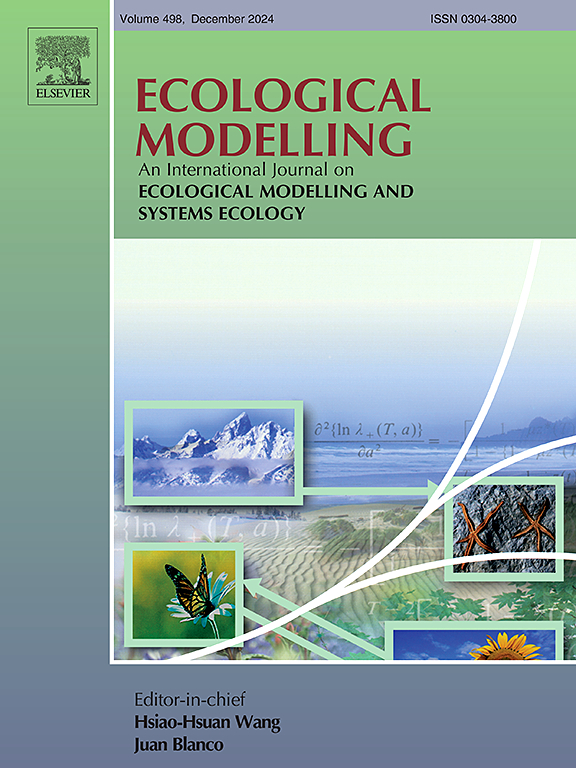通过合作治理对抗生态旅游的过度商业化:一个博弈论模型分析
IF 3.2
3区 环境科学与生态学
Q2 ECOLOGY
引用次数: 0
摘要
虽然过度商业化带来了经济效益,但也造成了生态破坏,破坏了生态旅游目的地的生态系统服务。本文通过构建政府、企业和游客的演化博弈模型,分析了生态旅游过度商业化现象,并模拟了不同影响因素下政府、企业和游客的合作策略。研究结果表明,解决生态旅游的过度商业化需要合作治理的努力。具体而言,当监管成本较低、中央政府的政治效益较高、环境修复成本较高时,地方政府更有动力对过度商业化进行监管。此外,当地方政府对过度商业化的公司施加更高的惩罚时,当非过度商业化旅游的利润更大时,公司更有可能减少过度商业化的做法。生态旅游的过度商业化可能具有吸引力,但避免过度商业化可以提高生态旅游产品的价值,从而吸引游客,减少他们对过度商业化的支持。游客对环境保护的偏好在抑制生态旅游项目公司的过度商业化行为中起着至关重要的作用。为了减轻过度商业化对生态系统的影响,政府应加强监管,提高企业过度商业化的相关成本,并促进游客对生态保护的偏好。本文章由计算机程序翻译,如有差异,请以英文原文为准。
Combating over-commercialization in ecotourism through collaborative governance: A game-theoretic modeling analysis
Although over-commercialization brings economic benefits, it results in ecological damage and disrupts ecosystem services at ecotourism destinations. This paper addresses the phenomenon of over-commercialization in ecotourism by constructing an evolutionary game model involving the government, companies, and tourists, and simulates their cooperative strategies under various influencing factors. The findings suggest that addressing over-commercialization in ecotourism requires collaborative governance efforts. Specifically, local governments are more motivated to regulate over-commercialization when the regulatory costs are lower, the political benefits from the central government are higher, and environmental remediation costs are greater. Additionally, when local governments impose higher penalties on companies for over-commercialization, and when the profits from non-over-commercialized tourism are greater, companies are more likely to reduce their over-commercialization practices. Over-commercialization in ecotourism may be appealing, but avoiding over-commercialization can enhance the value of ecotourism products, which can attract tourists and reduce their support for over-commercialization. Tourists’ preference for environmental conservation plays a crucial role in restraining the over-commercialization behaviors of companies involved in ecotourism projects. To mitigate the impacts of over-commercialization on ecosystems, governments should strengthen regulatory efforts, increase the costs associated with over-commercialization for companies, and promote tourists’ preferences for ecological conservation.
求助全文
通过发布文献求助,成功后即可免费获取论文全文。
去求助
来源期刊

Ecological Modelling
环境科学-生态学
CiteScore
5.60
自引率
6.50%
发文量
259
审稿时长
69 days
期刊介绍:
The journal is concerned with the use of mathematical models and systems analysis for the description of ecological processes and for the sustainable management of resources. Human activity and well-being are dependent on and integrated with the functioning of ecosystems and the services they provide. We aim to understand these basic ecosystem functions using mathematical and conceptual modelling, systems analysis, thermodynamics, computer simulations, and ecological theory. This leads to a preference for process-based models embedded in theory with explicit causative agents as opposed to strictly statistical or correlative descriptions. These modelling methods can be applied to a wide spectrum of issues ranging from basic ecology to human ecology to socio-ecological systems. The journal welcomes research articles, short communications, review articles, letters to the editor, book reviews, and other communications. The journal also supports the activities of the [International Society of Ecological Modelling (ISEM)](http://www.isemna.org/).
 求助内容:
求助内容: 应助结果提醒方式:
应助结果提醒方式:


